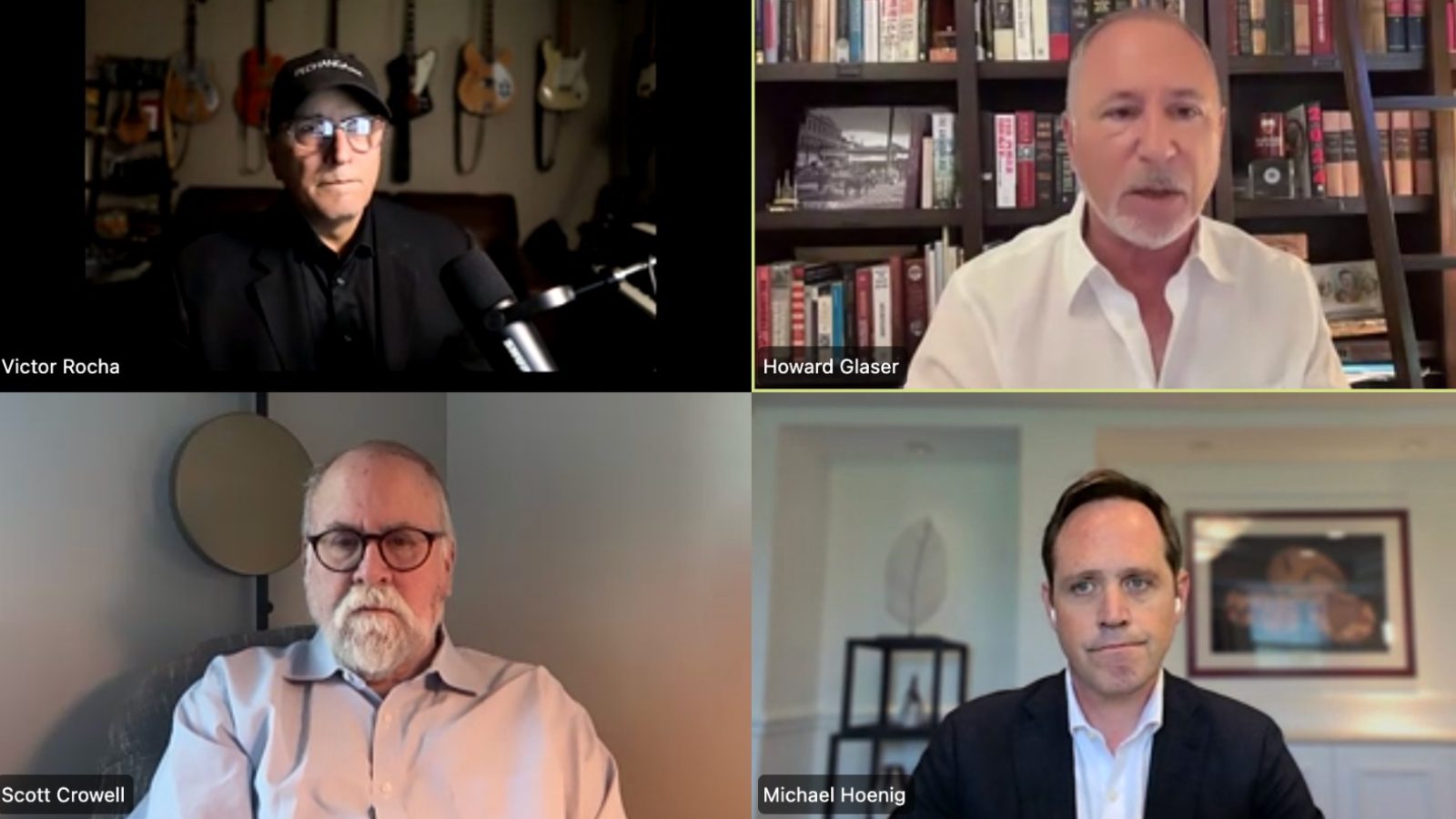New Normal: California Sweepstakes Ban Just The First Victory In War Against Unregulated Gambling
New law provides enforcement tools against sweeps operators, but more work to be done
4 min

Now that Gov. Gavin Newsom has signed AB 831, making sweepstakes-style gaming illegal in California, the next steps are enforcement and potentially a federal clampdown on unregulated gambling, said a panel of gaming industry executives and lawyers Wednesday.
Wednesday’s episode of the New Normal webinar, hosted by Indian Gaming Association Conference Chair Victor Rocha, was less a celebration of the California victory, and more the start of crafting a roadmap to actually eliminate the unregulated or federally regulated platforms in California and across the country before they become the status quo and make state regulation “irrelevant.”
Newsom signed AB 831, which bans sweepstakes gaming platforms in California, on Saturday. Before reaching his desk, the bill passed both state legislative chambers unanimously. And it goes beyond just making the operator platforms illegal — AB 831 also extends to suppliers and vendors servicing those platforms, like payment providers, web hosting services, and more.
“Hopefully now [California] AG [Rob] Bonta as well as county DAs across California have this as a tool,” Michael Hoenig, vice president associate general counsel for gaming, Yuhaaviatam of San Manuel Nation, said. “The fact that this went through the Senate and Assembly without a no vote, hopefully they see this as a clear green light to go after these companies.
“AB 831 isn’t just about the providers, it’s about cutting off all of the support they would need.”
That strategy, the panel said, should make it clear to suppliers and vendors that working with illegal platforms will make it so they cannot work with legal platforms in a state. Regulators in Arizona and Ohio are using a similar blueprint in an attempt to stop prediction markets from operating in their states.
Prediction markets also on the plate
While there are no laws in place explicitly prohibiting prediction markets in any state, the regulators have made clear to state-licensed sports betting operators, suppliers, and vendors that offering or providing services to such markets could put their licenses at risk.
Prediction markets have been at the center of the news in the gambling world for the past year, since Kalshi first got the right to offer election betting and later offered its first sports event contracts in January ahead of the Super Bowl.
The federally regulated platform — and others that have since gone online with similar offerings — is available throughout the U.S., but without the same kinds of guardrails and mandates as state-regulated gaming entities. In states where sports betting is not yet legal, Kalshi has made major inroads, but, Hoenig said, it is infringing on state and tribal sovereignty.
“You could go into Yaamava, and buy a prediction market contract or play a sweepstakes model, though hopefully for not much longer,” Hoenig said of the San Manuel casino. “And that’s why you see tribes stepping up. … It’s not about the bottom line so much, it’s about having control as what’s going on on their lands. I think that’s why you see tribes coming out so ferociously” against prediction markets and other forms of gaming.
Tribal attorney Scott Crowell called the prediction markets an “affront to state sovereignty” and said that in states where digital gambling is illegal, it is not enough for lawmakers and regulators to “sit on their laurels” — they must take action.
Unlicensed platforms come in many flavors
Panelists said the new California anti-sweepstakes law, set to go into effect Jan. 1, 2026, is the first step to quashing illegal operators and preserving sovereignty for states and Indian Country. While AB 831 gives regulators and law enforcement the tools needed in one state to eliminate this form of gambling, the issue, said Light & Wonder Global Head of Government Affairs and Legislative Counsel Howard Glaser, goes beyond a single form of unregulated gambling.
“This is just one flavor in a Baskin Robbins list of flavors,” he said. “Sweepstakes has proved, if nothing else, that there is a huge consumer demand for online gambling, and there are very scarce legal opportunities for people to participate. It was sweepstakes yesterday, prediction markets today, and who knows what tomorrow? There is demand and a limited amount of legal options, that’s the problem.”
Crowell said AB 831 provides not just the enforcement power, but the “political cover” for law enforcement in California and other states. None of the panelists expect an appeal or pushback from sweepstakes operators, but they did point to the possibility that some platforms will evolve and attempt to find loopholes through which they could still operate.
One example is that AB 831 bans dual-currency gaming models, and panelists said it’s possibly that triple-currency models will emerge, which would require that the law to be amended. In fact, the online poker site ClubWPT Gold has already introduced such a model.
Federal help needed
The panel also called on the federal government, via the Department of Justice (DOJ), Financial Crimes Enforcement Network (FinCen), or the National Indian Gaming Commission (NIGC), to become more active in the fight against unregulated digital operators. A group of 50 attorneys general in August sent a letter to the DOJ calling for a crackdown on illegal gambling sites, but so far, there has been no response. For tribes, the NIGC’s failure to act has been a source of frustration.
Glaser said the federal government has been “absent” in this fight, and that “it’s a national problem that crosses borders. There is no digital wall that keeps out digital bad actors, and the federal government is going to have to do that or these groups will continue to plunder in the U.S.”
With regard to the NIGC, Crowell said “it’s on the radar screen and I know that they are very concerned,” but on Day 15 of the current government shutdown, he said all federal agencies are facing “a flood of of other issues that are probably of higher priority.”
Glaser said legalizing is of paramount importance to tribes, as he estimates that $12 billion in gross gaming revenue — $4 billion in sports betting and $8 billion in iGaming — is leaving California. “That money is going somewhere,” he said, “and while we are focused on sweeps, that is just the canary in the coal mine, and we have to deal with the underlying issue.”
In California, only in-person casino gambling at tribal casinos and parimutuel wagering at horse tracks are legal. A pair of sports betting ballot initiatives failed in 2022, and it’s unclear exactly when the next attempt will come, as California’s tribes have not yet settled on a framework.
“The best way to make a huge dent in the illegal market is to make a legal market,” Crowell said.




